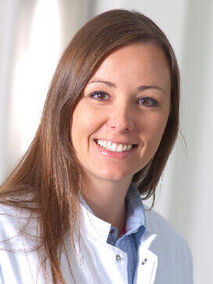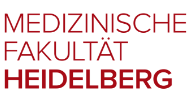
Dr. med. Carolin Lerchenmüller
Resident physician
(Klinik für Kardiologie, Angiologie, Pneumologie)
Research Group Leader
(AG Cardiac Remodeling and Regeneration)
Medical/Professional background
- since 2011
Resident/Fellow, Department for Cardiology, Angiology and Pneumology, University Hospital Heidelberg
- since 2013
Postdoctoral Research Fellowship at the Cardiovascular Research Center, Massachusetts General Hospital, Harvard Medical School (Prof. Anthony Rosenzweig)
- 2012
Promotion: Universität Heidelberg (Prof. Hugo A. Katus), Thomas Jefferson University Philadelphia (Prof. Patrick Most)
- 2011 – 2012
Laboratory for Molecular and Translational Cardiology, University Hospital Heidelberg, Department of Cardiology (Prof. Patrick Most)
- 2008 – 2009
Predoctoral studies at the Center for Translational Medicine (Prof. Walter Koch), Laboratory for Molecular Cardiology (Prof. Patrick Most)
- 2003 – 2010
Studium: Universität Heidelberg (final year rotations: Yale Medical School, New Haven, CT; Mount Sinai Medical School New York, NY)
Commendations
- 2019
Präventionspreis der Deutschen Gesellschaft für Innere Medizin (DGIM) und der Deutschen Stiftung Innere Medizin (DSIM)
- 2016
Young Investigator Travel Award, American Heart Association (BCVS)
- 2011
Research Prize Walter Erb Foundation
Professional memberships
German Cardiac Society (DGK)
American Heart Association (AHA)
European Society for Cardiology (ESC)
Interessensgebiete/ Forschungsschwerpunkte
Molecular Cardiology:
- Does exercise induce cardiomyogenesis? (Applying multi-isotope mass spectrometry
- The role of the transcriptional co-activator CITED4 in cardiac hypertrophy and regeneration
- The calcium-binding Protein S100A6 and its role in the development of cardiac vasculature and cell cycle progression of vascular cells
Gender Research in the Life Sciences:
- Do young female scientists earn the credit they deserve?



